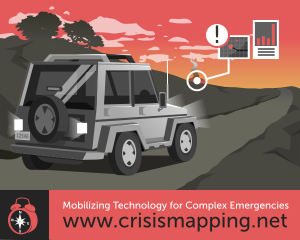Conference: Memory, Identity, and the Archiving Paradigm
Memory, Identity and the Archival Paradigm:
an interdisciplinary approach
9-10 December 2010, Dundee, Scotland
Conference announcement: Call for Papers
The Centre for Archive and Information Studies (CAIS) at the University of Dundee invite proposals for a conference being held on 9-10 December 2010 in Dundee, Scotland. The conference is supported by a Royal Society of Edinburgh Arts and Humanities research award and is the second conference within the Investigating the Archive project. The first conference, the Philosophy of the Archive, was held in Edinburgh in March 2009. Selected papers from that conference are available in a special issue of Archival Science, Vol 9, no 3, 2009.
Proposals for individual 20-30 minute presentations or panel sessions of up to three speakers will be considered. Abstracts of c.250-350 words, together with a short biography, should be submitted by Friday 23 April to:
Patricia Whatley, Director, Centre for Archive and Information Studies:
p.e.whatley@dundee.ac.uk.
See the rest of the announcement at the conference webpage.
Un-Conference on Social Media and Activism

Image courtesy of http://www.ushmm.org/social/blog/
The United States Holocaust Memorial Museum and George Mason University’s Center for History and New Media will be hosting a one day working meeting to look at the role of Social Media in activism. The title of the (un-)conference is “The Conscience Un-Conference: Using Social Media for Good” and will take place in Washington D.C. on December 5, 2009.
From the webpage:
Can a tweet confront hatred? Can tagging photos prevent prejudice? Can a Facebook fan page promote human dignity? Can a mobile phone strengthen democracy?
The Conscience Un-Conference: Using Social Media for Good is a free, one-day “un-conference” co-hosted by the United States Holocaust Memorial Museum and George Mason University’s Center for History and New Media. It intends to bring together interesting and interested people to talk about the problems, practicalities, and opportunities of using social media to further the missions of “institutions of conscience”—those concerned with violence and atrocities, human rights, and related issues.
The “un-conference” will be held on Saturday, December 5, 2009 from 8:30am to 5:30pm at the Museum in Washington, DC. Applications are due by Tuesday, October 13, 2009. Learn more and apply.
The point of this meeting is to consider the increasing use of social media in public institutions (e.g., museums or libraries) and how this relates to concerns about control of collections, security of individuals, sensitive materials, or sensitive populations, and those “who hold in trust the memories of victims of tyranny, human rights abuses, and genocide.” The goal of the un-conference is to hash out these issues as institutions increasingly participate in platforms such as Twitter, Facebook, blogs, and the like. There is no set agenda–it is to be a working meeting between attendees and serve as a starting point for devising practices for the responsible use of social media within public institutions.
Conference: Crisis Mapping 2009

Image courtesy of http://crisismapping.ning.com/
There will be a conference hosted in Cleveland, Ohio October 13-16 2009 focusing on the emerging field of Crisis Mapping. Conference registration is now closed, but it will be worthwhile to follow the results of the working groups that will be hosted at the event. See Crisis Mapping 2009: The First International Conference on Crisis Mapping (ICCM) for more information. The conference is hosted by the Harvard Humanitarian Institute and the Department of Political Science at John Carroll University. The Conference has received sponsorship from the Open Society Institute (OSI), Humanity United (HU), and the US Institute of Peace (USIP).
Crisis Mapping
Crisis Mapping is an emerging field in humanitarian work that takes advantage of a variety of technologies and techniques to dynamically map events so that monitoring groups, governments, international bodies, or other interested parties can follow emerging crises and respond to them. Crises can be anything from natural disasters to large scale violence. The idea behind crisis mapping is to allow individuals witnessing an event to post information to dynamic maps (often through Google Maps) by up-loading images or text reports from a mobile device. These images or text files are linked to a particular geographic location on an interactive map where users can click on marked locations and view the the posted information. As individuals submit information to a map, crisis patterns emerge, allowing for better intervention strategies. Mapping also records key data for tracing the emergence and movement of human rights events anywhere in the world.
iRevolution
For detailed information on Crisis Mapping visit iRevolution, a blog maintained by Patrick Meier, a Ph.D. candidate in Harvard’s Fletcher School of Law and Diplomacy. Mr. Meier maintains the blog as part of his dissertation research, which:
… analyzes the impact of the information revolution on repressive rule and social resistance. I am particularly interested in how repressive regimes and resistance groups use information communication technologies to further their own strategic and tactical goals. To this end, I provide research guidance to DigiActive, a non-profit initiative dedicated to digital activism, and serve on the Board of Advisers for Digital Democracy.
The blog focuses on how humanitarian efforts and social resistance groups take advantage of a variety of technologies and methods for sharing information to counter social injustice, human rights abuses, and repression. Mr. Meier profiles various mapping and information programs throughout his blog posts. He has also produced a 38 minute video Introduction to Crisis Mapping that provides a good overview of different interactive mapping techniques and technologies.

leave a comment